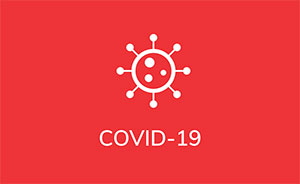For chronic lymphocytic leukemia/small lymphocytic lymphoma (CLL / SLL) patients to feel safer as they re-enter a world where SARS-CoV-2 remains an active threat, we need more help than a vaccine that doesn’t reliably protect us. This is especially true while so many individuals around us are refusing the COVID-19 vaccination, making the prospect of herd immunity a fading fantasy.
But there may be other ways out.
If a vaccine isn’t the answer for many of us with CLL / SLL, then the passive immunity offered through pre-exposure prophylaxis (PrEP) with COVID-19 monoclonal antibodies has been the most advanced and promising preventive measure at this point in the pandemic. But even the impressive 77% prevention rate observed with AZD7442 might not be enough reassurance for some reluctant CLL / SLL patients.
But what if the option of taking a five-day course of anti-viral pills could slash hospitalizations by 89% for those who began this anti-viral medication within three days of symptom onset? Would many start to feel safer?
It is early data, but they are exciting! I wish we had more than a press release. I wish we had results that were specifically reported from the immunocompromised. But in the meantime, here is an excellent explanation about how Pfizer’s antiviral pill works from SCIENCE. It is comprised of two drugs: an experimental drug known as PF-07321332, combined with an old generic HIV drug called ritonavir. The SCIENCE article nicely explains how the two drugs work together to fight COVID-19.
Science is moving very fast, but 100% protection against COVID-19 is not likely any time in the near future. However, the risk may soon be low enough that it’s deemed acceptable by most CLL patients, allowing them to reengage with family, friends, and the world at large.
There may finally be a light at the end of this long and dark tunnel.
Stay strong. We are all in this together.
Brian Koffman MDCM (retired) MS Ed (he, him, his)
Co-Founder, Executive VP, and Chief Medical Officer
CLL Society, Inc.

















